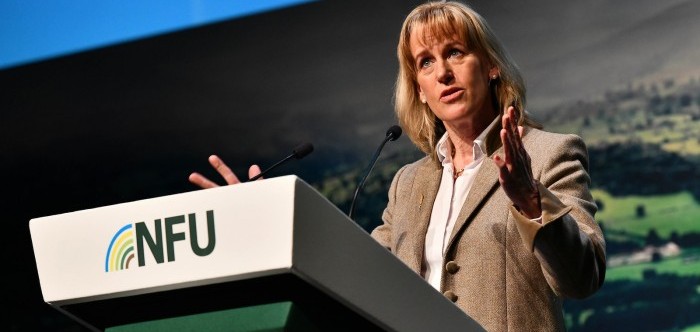The NFU is demanding ‘urgent answers’ from the UK government regarding its future trade policy and the ongoing negotiations on a Free Trade Agreement (FTA) with Australia.
This follows reports suggesting that, following a Cabinet meeting on Thursday, the Government is set to offer Australia a trade deal that includes a 15-year transition to zero-tariffs and zero-quotas. International Trade Secretary Liz Truss is reported to be keen to get the deal signed off by the time of the G7 summit in Cornwall in June.
There has, according to reports, been a row within Government over this, with Defra Secretary George Eustice, who has argued for quotas to help protect UK farmers, and his predecessor Michael Gove among those fighting the industry’s corner.
The Prime Minister is clearly backing Ms Truss, telling MPs this sort of deal would represent a ‘massive opportunity’ for UK farmers, and accusing those arguing against tariff- and quota-free trade of ‘grossly underestimating’ UK farmers’ ability to ‘make the most of free trade’.
However, NFU president Minette Batters has warned that a deal of this nature would amount to a ‘serious betrayal’ of farmers.
While the Australian deal would mainly affect UK beef and sheep farmers, there are fears it could set a precedent for future deals with the likes of the US that would pose a threat to UK pig producers.
The NFU has asked the Government to address five key questions about the Government’s future trade policy:
- What specific meaningful safeguards for domestic agriculture will be included in our FTAs?
- What is the government’s plan to continually review the impact of our FTAs as they are implemented and through the lifetime of the agreements?
- Where is the comprehensive and cross-government strategy to improve productivity and competitiveness and to provide adjustment assistance for farming in respect to the changing market conditions resulting from new FTAs?
- Where is the government’s response to the Trade and Agriculture Commission’s report in March 2021 and why has the new statutory Trade and Agriculture Commission that will need to scrutinise trade deals before they are signed not yet been set up?
- What precedent does the government expect will be set by each FTA and where is the detailed economic assessment of the cumulative impact on domestic UK agriculture of all the UK’s current and future FTAs?
Mrs Batters said: “It is incredibly disappointing to hear news of the government’s trade strategy from sources other than the government themselves, especially when its reported plans will have such a massive impact on British farming.
“There remains a huge amount of unanswered questions about exactly how decisions regarding trade policy have been made, on what basis and how it will operate in the future. It’s crucial urgent answers are provided to these questions.
“It is also incredibly concerning that the government is in a ‘sprint’ to sign up to a trade deal with Australia that would have serious implications for British farming and would seemingly offer incredibly little benefit to the economy.
“We continue to maintain that a tariff-free trade deal with Australia will jeopardise our own farming industry and could cause the demise of many, many beef and sheep farms throughout the UK. This is true whether tariffs are dropped immediately or in 15 years’ time.
“The Prime Minister and his government have pledged to level up the country. Agreeing to a tariff-free trade deal with a major agricultural exporter, with no safeguards or review mechanisms, would do exactly the opposite of that commitment and set swathes of rural Britain backwards.
“It is vital that we have a thriving food production industry. We all saw the importance of this during the height of the pandemic; when government itself described farmers as key workers playing a vital role in delivering the nation’s food.
“We remain of the view that it is wholly irresponsible for government to sign a trade deal with no tariffs or quotas on sensitive products and which therefore undermines our own domestic economy and food production industry.”
According to the BBC, the prime minister’s spokesman said: “Any agreement would include protections for our agriculture industry and won’t undercut UK farmers. We want a deal that is good for the British public and any agreement would have protection for the agriculture industry.”




